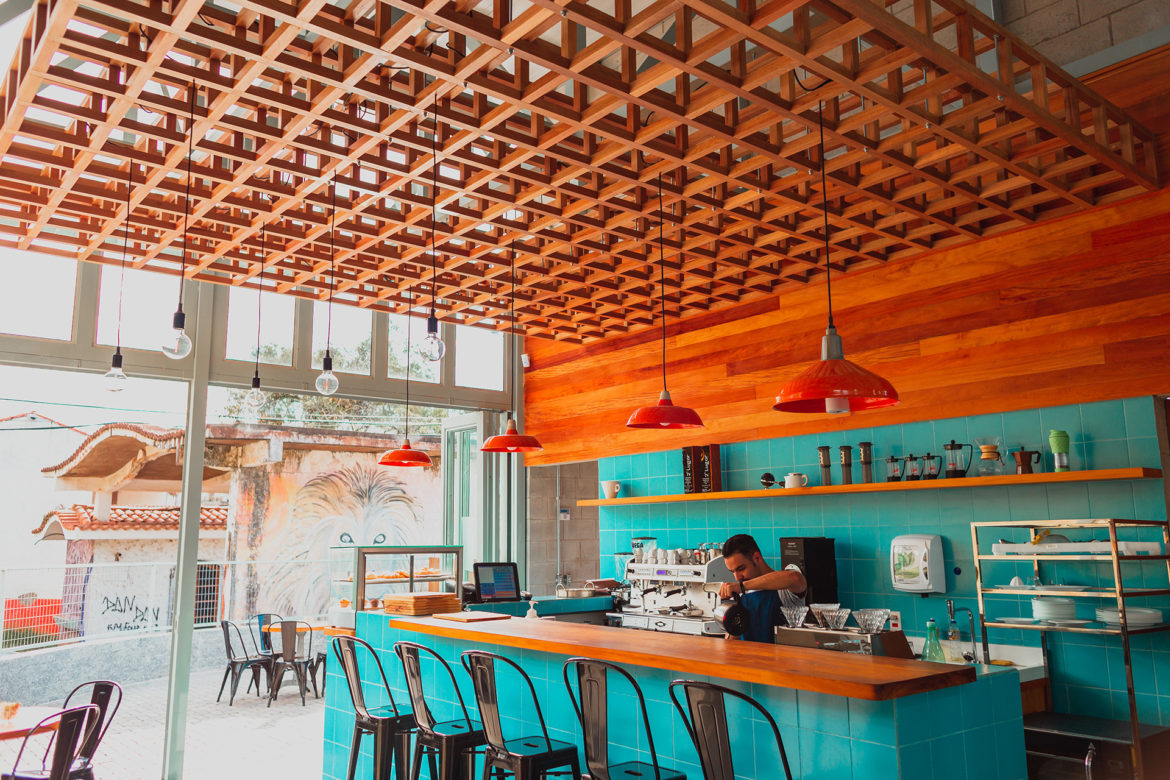
São Lourenço is a touristy little town in the heart of Mantiqueira de Minas, one of Brazil’s most notorious specialty coffee producing regions in the state of Minas Gerais. The town’s Parque das Águas (water park) occupies a 400,000-square-meter green area downtown and is the source of nine therapeutical mineral waters, each holding distinct healing properties. Visitors can fill their bottles with the water of choice and also choose to take one of the therapeutic baths, sauna sessions, or ayurvedic treatments that are offered at the park’s spa center.
Helcio Junior and his family founded Unique Cafés Especiais in São Lourenço back in 2008, following the trend they had been observing as green coffee traders—his family farms coffee as well—but also as a means to absorb the town’s great touristic potential. The first Unique coffee shop is located very close to the water park, in the city center. All these years, their wholesale operation grew considerably, but their roastery was located in an industrial site in Carmo de Minas, not open to the public.
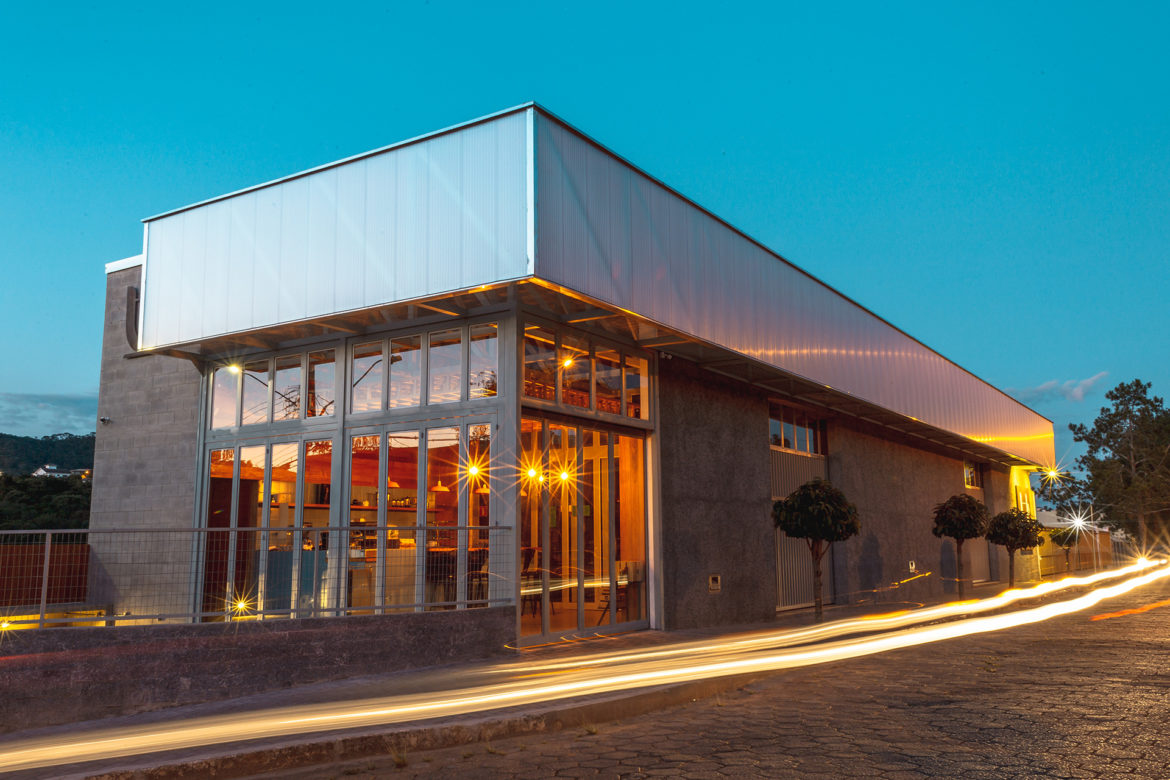
The new roastery, inaugurated in November of 2018, celebrates everything that Junior and his family have wanted to do for a long time. In a much larger space exclusively dedicated to coffee, they now house a coffee bar, their administrative and sales headquarters, and a roastery, all in the same space, right off the road between Carmo de Minas—the epicenter of coffee production in the Mantiqueira—and São Lourenço, the therapeutic water haven.
“I knew the region had this touristic appeal, and following the craft beer, wine, and cheese waves, we wanted the new roastery to showcase the roasting process to customers, and at the same time strengthen our brand as a local coffee company,” says Junior. In fact, many of the customers at the new roastery come as part of a special tour Unique promotes on a weekly basis, that takes tourists and coffee geeks alike from the coffee bar in downtown São Lourenço to the farm and now ends at the new roastery. “It is literally a seed to cup experience,” says Junior. He is right, and although we are in a producing country, not many roasteries can showcase such a complete connection between the consumer and the producers, let alone on a weekly basis.
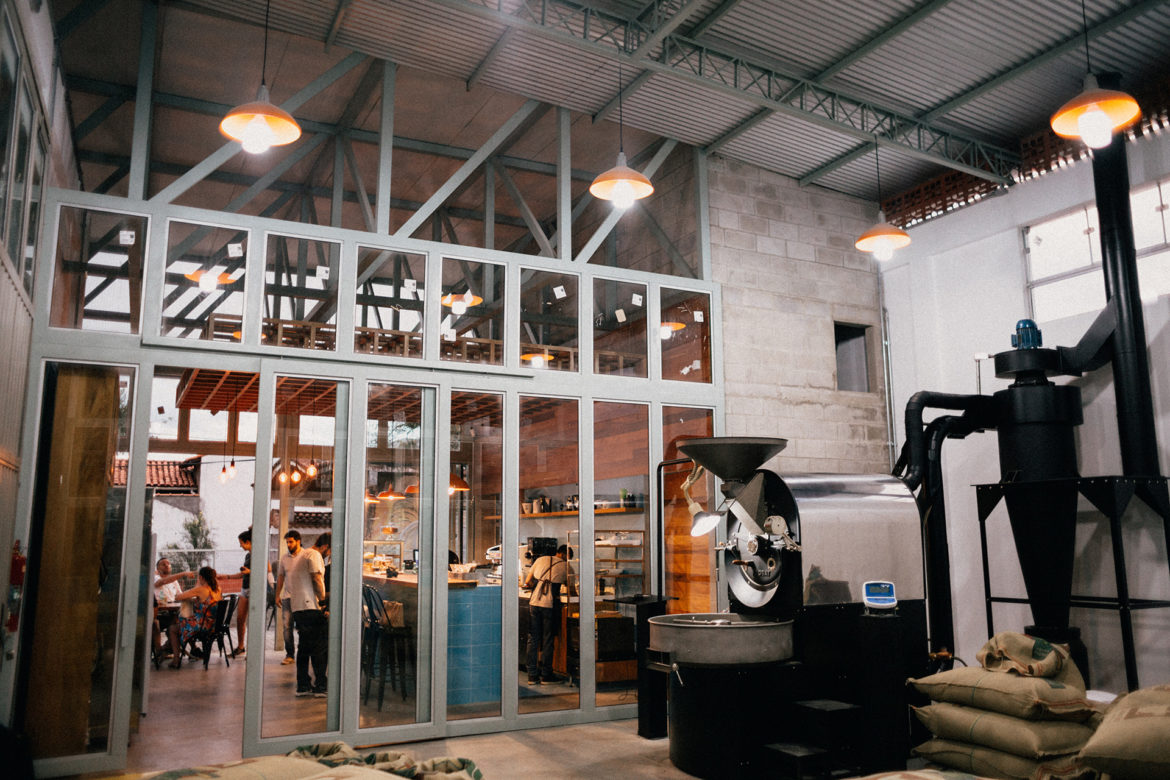
The new space has an industrial feel, but Junior explains that has more to do with complying with local legislation than anything else. Initially the idea was to use up a lot of repurposed wood from the family farm, however since they are required has to follow local food production legislation, they had to use cement and tiles instead. The architect made the roastery space visible through glass wall, and the high ceilings from the location make the temperature inside very pleasant. The entire space has about 200 square meters, which is rather large for a specialty roasting operation in Brazil, and they roast on a 25-kilo Probat.
Right across the street, the Unique team planted more than 300 coffee trees right off the road, just so people who are just driving by can have the opportunity to see what coffee trees look like, even if they don’t get to visit a coffee farm. The idea is, in the future, to build a green house to grow coffee seedlings in the backyard of the roastery space.
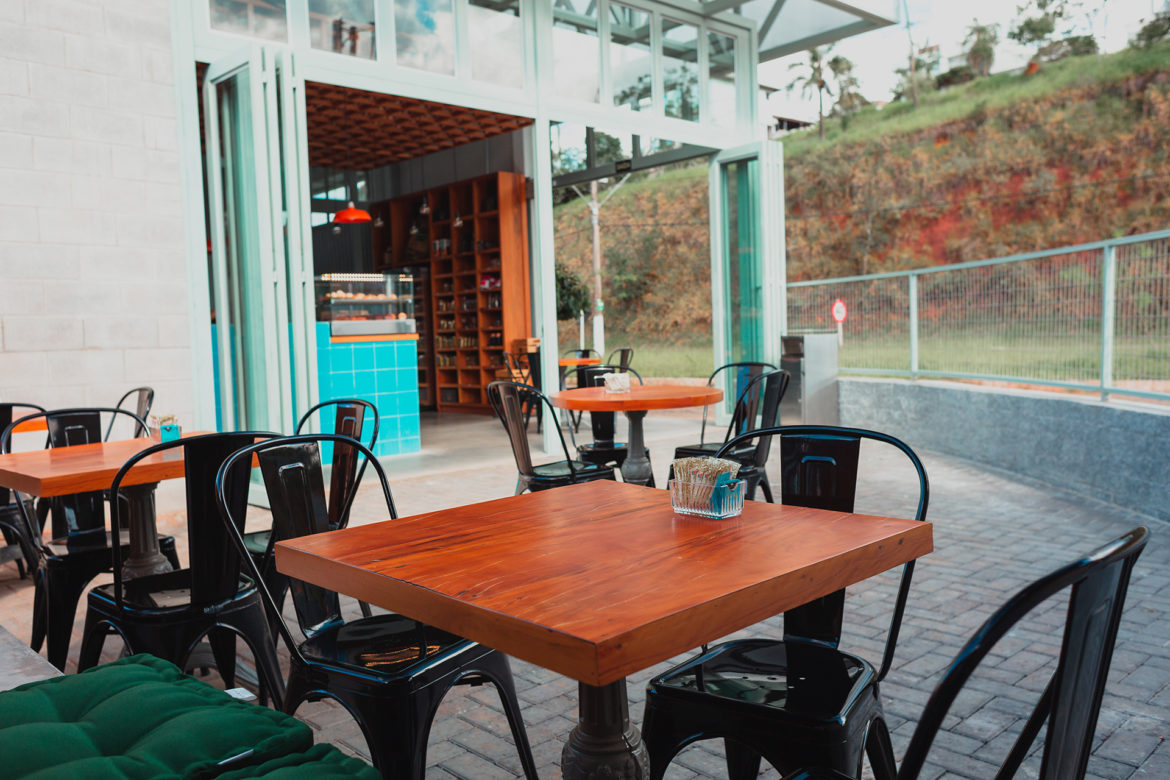
With the shop located on such a busy thoroughfare, Junior is hopeful it might attract attention from even more casual Brazilian coffee consumers.
“I think that this could be a first step for all these drivers who travel this touristic route to become more curious about the coffee chain. Here, they can learn a lot about coffee just having a chat with our baristas or our roastery folks,” he explains. “Sometimes, people don’t want to go all the way to the farm, or don’t have the time to do so. And that’s ok. We are here for those people. They can learn about coffee with us, right here.”
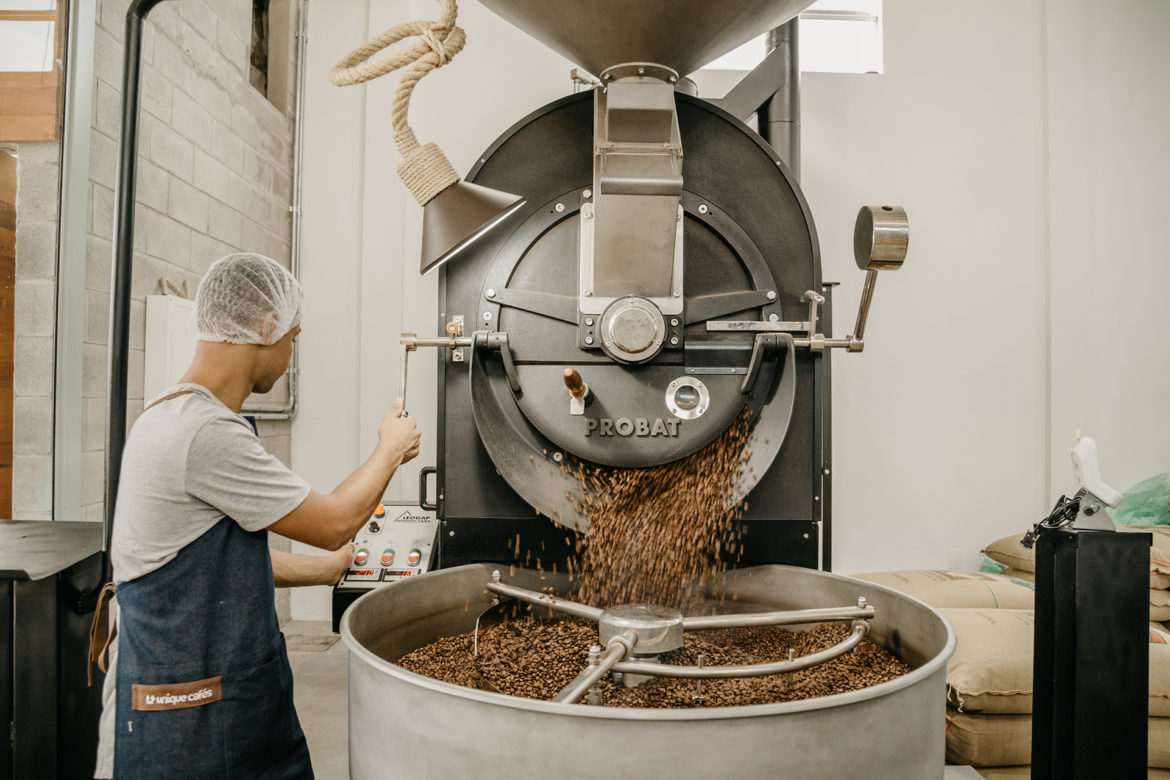
The focus of the coffee shop inside the roastery is a bit different from the location in downtown São Lourenço, a shop that is constantly busy and has many food options. Here, there are only a few food items to choose from—the menu is built around coffee—espresso and filter methods—and the so-called coffee “duels,” where the client can choose the same coffee extracted in two different methods. And although they do serve beans from Fazenda Sertão, Junior’s family’s own farm, the roastery operates independently, and coffee is sourced from a variety of farms. Every two months, a limited edition coffee is released for online sales and served at both shops.
Whenever you visit São Lourenço for its therapeutical waters, or go to Carmo de Minas for green coffee sourcing, you can complete the experience with a trip to this striking roastery cafe conveniently located along your journey.
Unique Cafés Especiais is located at Via Othon de Carvalho, 1020, São Lourenço. Visit their official website and follow them on Facebook and Instagram.
Juliana Ganan is a Brazilian coffee professional and journalist. Read more Juliana Ganan on Sprudge.
Photos by Tribus Studio.
The post Going From Seed To Cup At Unique Cafés Especiais In São Lourenço, Brazil appeared first on Sprudge.

